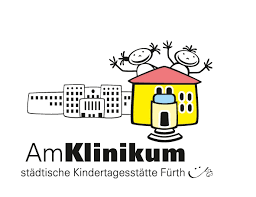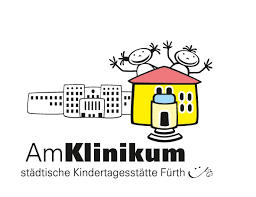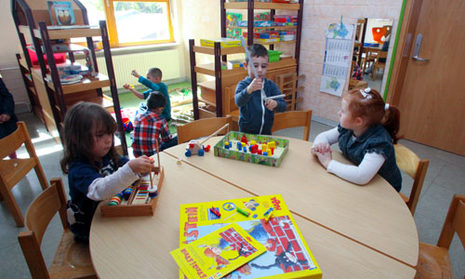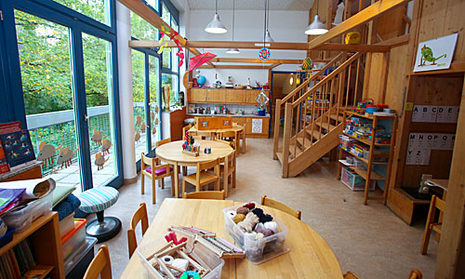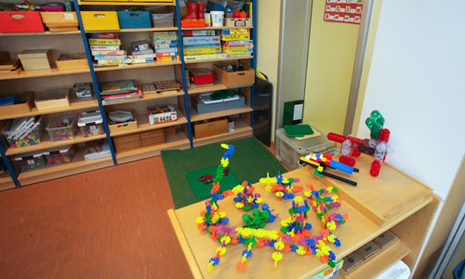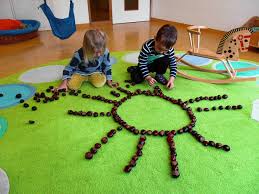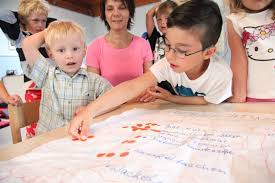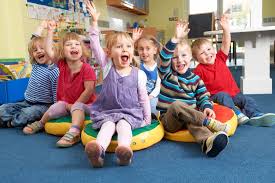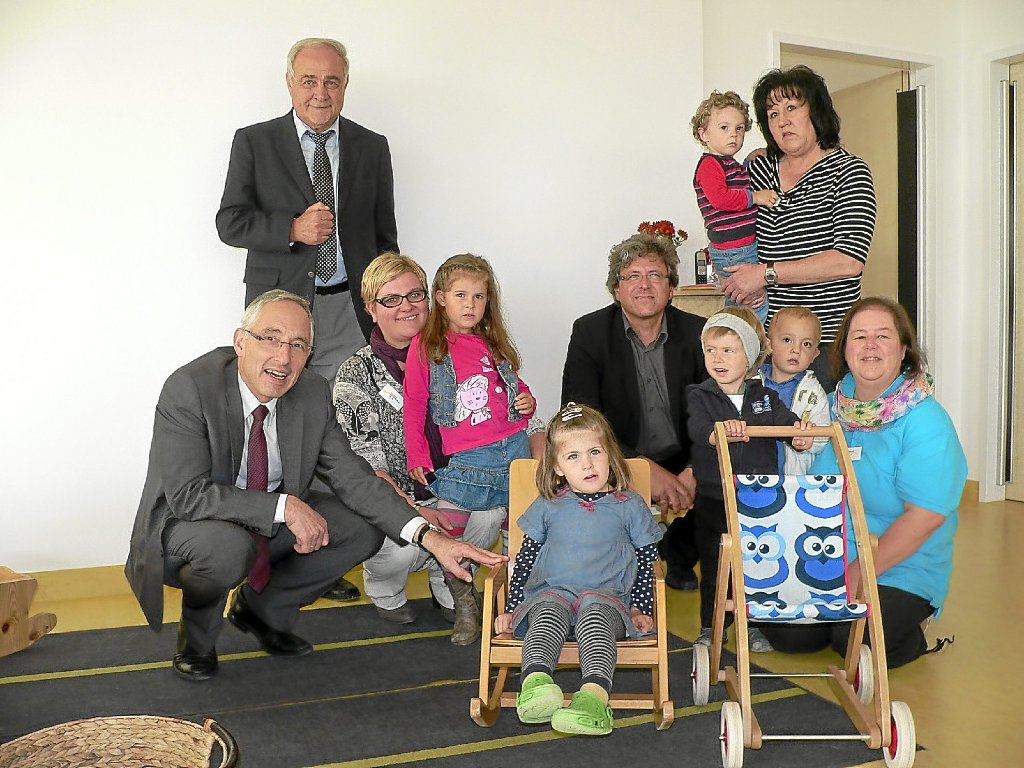KiTa X Kindergarten "Am Klinikum"
 79
79
 2021-01-13 14:01:50
2021-01-13 14:01:50
Company address
Location:
Germany, Furth , Jakob-Henle-Straße 1B, 90766 Fürth, Germany
Service types
About company
Educational goals, methods and activities
social learning
Social learning includes:
- the ability to act individually and in groups with children and adults
- the ability to empathize with another person and to be able to work with them
- the ability to handle conflicts
- the ability to understand common rules, rights and obligations and to take responsibility for them
Personal skills
We as educators see our task in seeing the child as an individual and recognizing his or her personal abilities. For this reason, we work in our facility according to the situation-oriented approach, ie we orient ourselves to the life and experience of the child and pick them up where they are in their development.
- Daily life exercises
- Self-awareness exercises
- role play
Social skills
An important point in our pedagogical work is to involve the children in “their” day-to-day kindergarten, they should learn to determine their play location, material and partner themselves. The familiar atmosphere that our small facility offers is a good prerequisite for our kigakildren to dare to name and represent their own opinion, their wishes, but also criticism. We encourage the children to communicate with the group, resolve conflicts with words, and respect the wishes of others.
- Conversation and group rules
- Free play time
- projects
Everyday skills
Another field of learning is everyday action. Everyday kindergarten life gives the children security in its structure and sets tasks. Participation and the successful mastery of these fill the children with joy and pride, they learn to take responsibility and their self-confidence is increased.
- Independent table setting
- Independent dressing and undressing
- To clean up
Children of other ages
In the Kiga am Klinikum we look after 22 children in the age group of 3-6 years. However, our facility also offers the option of accepting children from 2.5 years of age. In order to achieve a good detachment of the child from the caregiver, the caregiver takes a lot of time for the child as well as for the parents during the acclimatization. After the careful acclimatization, the older children “take” the small children “by the hand” and accompany them through everyday kindergarten life with our support.
Due to our personnel key, it is possible for us to divide the large group into small groups (of the same age). Every small group, and therefore every child, has a permanent reference educator who offers age-appropriate activities and activities (e.g. excursions). The reference educator is the first point of contact for the parents.
- Child sponsorships ("big" helps "small")
- Age-appropriate songs, games and stories
- Free play time
Girls and boys
In our facility, boys and girls are equal and have equal rights. We live our everyday life together, everyone can use any toy or play in any play corner, but we also provide retreats. So we enable z. B. the boys to play football alone (if they want it that way) or the girls to create free space without boys.
The skilled workers have a “gender-conscious” pedagogical stance, ie they support the children in finding their roles and gender.
- Building corner
- playhouse
- Fairing corner
Intercultural learning
A matter of course in our facility is the interaction of children from different nationalities and cultures. We get to know customs, traditions, specialties and words from different languages with the children.
- common festivals
- intercultural breakfast and lunch
- small language studies, children's dictionary
Value orientation and religion
The basis of our concept is based on the humanistic image of man; in our institution we work based on the Christian image of man. We celebrate Christian festivals with the children, e.g. St. Martin or Christmas, but we also address festivals from other cultures (different cultures of the children). It is important to the team that we get to know different customs and religions in the kindergarten group.
In our facility, customs and “laws” are respected, for example no pork or food with pork added. We take children's curiosity seriously and respond to children's questions.
- Celebrations in the annual cycle
- regular visits to the retirement home
language
Language is the "key to the world" because only language enables people to fully participate in social and cultural life. That is why language promotion plays a central role in our educational work. Linguistic competence consists of the ability to communicate through communication (interaction, articulation, vocabulary and grammar) and through written language (literacy). We want to encourage German children and children with a migration background to enjoy language through a variety of linguistic suggestions in dialogue and life-oriented relationships.
- Free and guided discussions with individuals, small and large groups
- joint development of rules of conversation
- Reading and telling picture and non-fiction books, stories, fairy tales, poems
- Training in phonological awareness (phonetic, language, rhyming and syllable games)
- free and guided role play
- Circle games, singing games, songs
- Children's library (picture and non-fiction books in various languages)
- “Children's office” with an electric typewriter
- Visit to the library
- Creation of everyday situations (e.g. shopping)
- Exercises in language-related conflict resolution
- Observation of language development through observation sheets (Sismik, Seldak)
Information and communication technology, media
Many children who visit our facility have already come into contact with the media. We want to impart media competence to the children in kindergarten, ie they should learn to use media (books, magazines, audio equipment, television sets, computers + software) consciously.
With the 3-year-olds we use the picture book as the main medium, the 4- and 5-year-olds we show the use of different media (cassette recorder, CD player, slide projector, camera) and talk to them about their experiences, we open up to our preschool children the world of computers.
- Book box
- Children can bring CDs or tapes from home
- Use of the Internet
mathematics
In day-to-day school life, children learn to organize according to size, weight, volume and length. The educational team opens up the world of mathematics to the children through colors, shapes, numbers, symbols and quantities.
- mathematical games (e.g. number domino)
- counting rhymes
- Placement games
- Cook and bake
We also work with the funding box: counting quantities, promoting mathematical skills with numbers.
In the support box, the children should recognize:
- that there are numbers behind numbers (number concept)
- that numbers represent increasing numbers (number order)
- that from one number to the next one is always added; that (in) numbers can be broken down into smaller (in) numbers (number relations)
Science and Technology
In our kindergarten, we provide the kindergarten children with technical knowledge about scientific phenomena and provide them with various materials (construction and construction games) so that they can learn to experiment in a playful way.
- Weather observation
- Plant experiments
- warmth - cold
- Researcher corner
environment
Our goal in environmental education is to arouse and promote children's interest in nature and the environment. You should learn to understand that there is a connection between humans and nature / the environment and develop the right behavior.
- Observation of nature in the change of seasons (in the garden of the kigas and excursions)
- Planting, caring for and harvesting fruit and vegetables in our raised bed
- Traffic education
- Waste separation / waste avoidance
Aesthetics, art and culture
We encourage our children's understanding of art and creativity by providing them with a wide range of materials for free design and special offers.
- Provision of craft material (paper, wool, glue, scraps of fabric, pens, etc.)
- joint decorating of the rooms (aesthetics)
- Getting to know the works of well-known painters (e.g. van Gogh)
music
Through the use of various musical elements, the children learn to express themselves in movement and gain their first experience in playing with musical instruments.
our body as an instrument
- Singing songs, singing games
- Accompaniment with body instruments (clap, stamp, click ...)
- try out sounds (imitate animal sounds)
Orff instruments
- Get to know instruments
- Trying out sounds
- Learn how to use instruments correctly
- Sound stories and clock games
- Accompanying songs
Listen to music and move to music
- come to rest and relax with meditative music
- Perception of high - low, loud - quiet, fast - slow
- Get to know different styles of music (classical, jazz)
- Folk and children's dances
Movement, rhythm, dance and sport
Music and movement education are closely related. With a wide range of exercise offers in the gym (department for physiotherapy in the clinic), in the garden, but also in the group room, we support the pronounced urge to move in children and enable them to discover and improve motor skills.
Gym class every Monday from 9 a.m. to 11 a.m. (age-homogeneous group distribution) in the physiotherapy gym
- Exercises with gymnastics equipment (balls, sticks, hoops, long benches ...)
- gymnastics
- Betting and relay games, movement games
- outdoor gymnastics
- Experience gymnastics (gymnastics based on a story)
rhythm
- Represent feelings, animals, natural events ... .. with the body, thereby understanding
- Express what you hear through music, movement and presentation
- Represent movement with rhythm instruments
Daily moving, climbing, sliding, swinging, playing ball and driving vehicles outdoors
health
In health education, we teach children about hygiene and personal hygiene and the dangers of accidents and accident prevention.
- Learn and observe basic hygiene rules
- Visit to the dentist, visit to a dental practice (preschool children)
- Pre-school examination
Conscious nutrition is a prerequisite for your child to grow up healthy. Therefore, this also plays an important role in our educational mission.
The children learn ...
... know different foods and flavors
... what healthy eating means
... that a healthy diet can be varied and tasty
... perceive with your senses (see, smell, feel, taste, hear)
participation
We want to develop a lively culture of participation with the children in our facility, because the children's right to co-determination (UN children's rights conventions §12) should be lived in our everyday kindergarten life. Our specialist staff accompanies the children in getting to know democratic forms of participation (corresponding to the children's level of development) so that they learn to represent their wishes and interests and to negotiate in a fair manner. This style of upbringing promotes self-confidence, the ability to deal with conflict, the ability of self-determination and participation and the development of resilience in children.
In the project-related participation, a problem that is manageable for the children is worked out with a concrete planning result.
- Preparation of an excursion
- Children decide on the composition of the
Breakfast buffets
The open form of participation is characterized by the focus on the children's expression of opinion.
- Children's conference
- narrative circle
- Development of group rules 




































 Post ad
Post ad 




